There’s something special about the Japanese language.
Many Japanese words express feelings or ideas that don’t exist in English. These words are often simple, but carry deep meaning rooted in Japanese culture and everyday life.
Other words simply sound beautiful, and are fun to say!
Here are 15 beautiful Japanese words that will show you just how magical this language can be. Be warned: you might just fall in love with Japanese!
Omotenashi (お持て成し)
Pronounced: oh-mo-teh-nah-shee

Omotenashi is the Japanese spirit of hospitality: thoughtful, generous, and selfless. It’s about anticipating someone’s needs before they ask, and offering service with care and respect.
You’ll experience omotenashi everywhere in Japan, from ryokan inns to convenience stores. Japanese people consider this form of hospitality to be a deep cultural value.
It has its roots in the traditional Japanese tea ceremony, where the host prepares each cup with care specifically for each guest. A tea ceremony is a great way to experience omotenashi for yourself if you visit Japan!
Kansha (感謝)
Pronounced: kan-sha
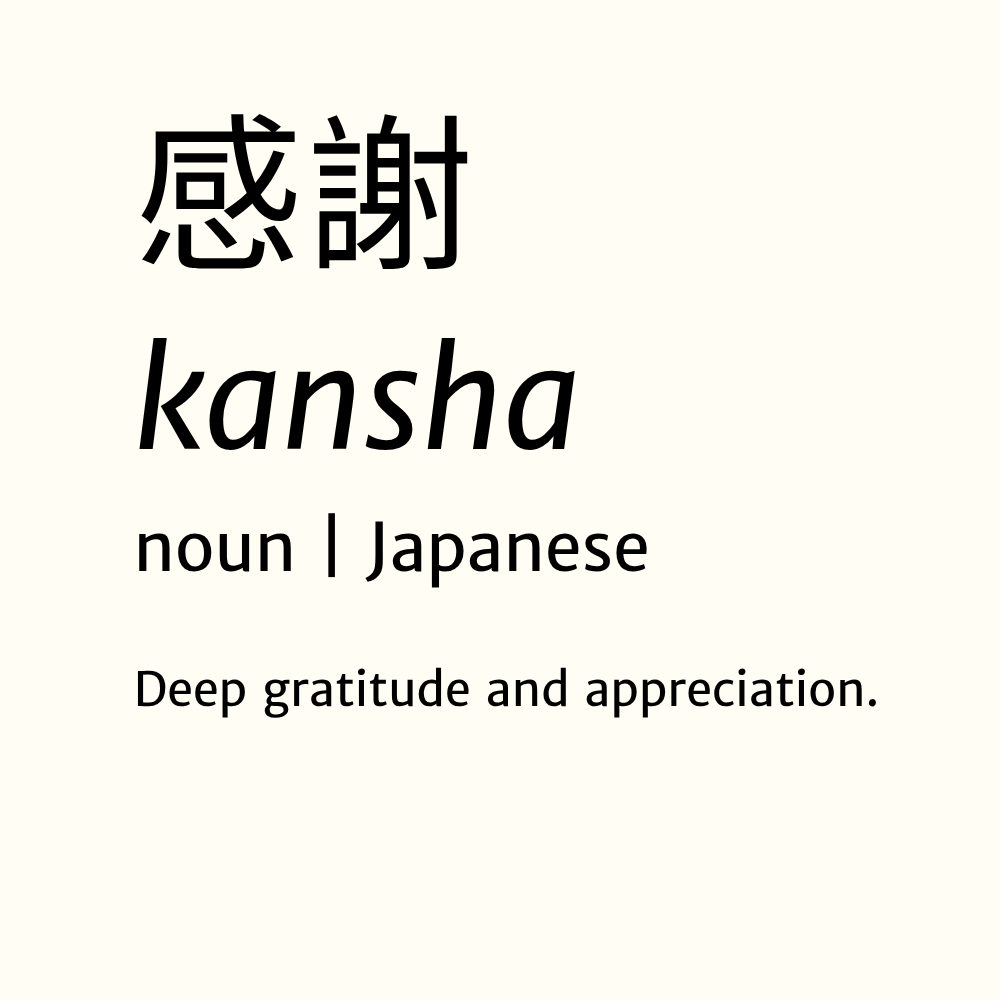
Kansha means gratitude, but it’s more than just saying thank you. It’s a heartfelt appreciation for everything – people, experiences, even challenges that help us grow.
The kanji kan (感) means ‘emotion’ and sha (謝) means ‘thanks’. Together, they reflect a deep sense of appreciation that runs through Japanese culture.
From saying itadakimasu before meals to giving seasonal gifts, kansha is a way of life.
Yūgen (幽玄)
Pronounced: yoo-gen

Yūgen is one of those mysterious Japanese words that’s hard to translate. It describes a deep, subtle beauty – the kind that’s felt rather than seen.
It might be the feeling of watching the moon behind clouds, or hearing a distant bell in the evening.
The kanji yū (幽) means ‘dim’ or ‘mysterious’, and gen (玄) means ‘deep’ or ‘profound’. Rooted in traditional arts like poetry and Noh theatre, yūgen invites us to find wonder in the hidden and the quiet.
Shizen (自然)
Pronounced: shi-zen

Shizen means nature, but it also reflects the natural flow of things.
The kanji shi (自) means ‘self’ and zen (然) means ‘as it is’ or ‘so’. So shizen is nature not as something separate from us, but something that simply exists, as it is.
In Japanese culture, respect for nature appears in everything from traditional gardens to seasonal foods and haiku poetry.
Shizen is also a concept In Japanese aesthetics, meaning natural and without pretense.
Shibui (渋い)
Pronounced: shi-boo-ee

Shibui describes a kind of refined, understated beauty. It’s not flashy or loud, but quietly stylish, like a simple ceramic cup or a faded indigo kimono.
It’s what many people think of as a classic minimalist Japanese style.
The original meaning of the word is bitter or astringent, like the taste of green tea or unripe fruit. Over time, it came to express subtle elegance and depth.
It’s also increasingly used to mean ‘cool’ in Japanese, in a kind of old-school, retro way. For example, a cool vintage outfit or a cafe with retro Japanese decor.
Kanbi (甘美)
Pronounced: kan-bee
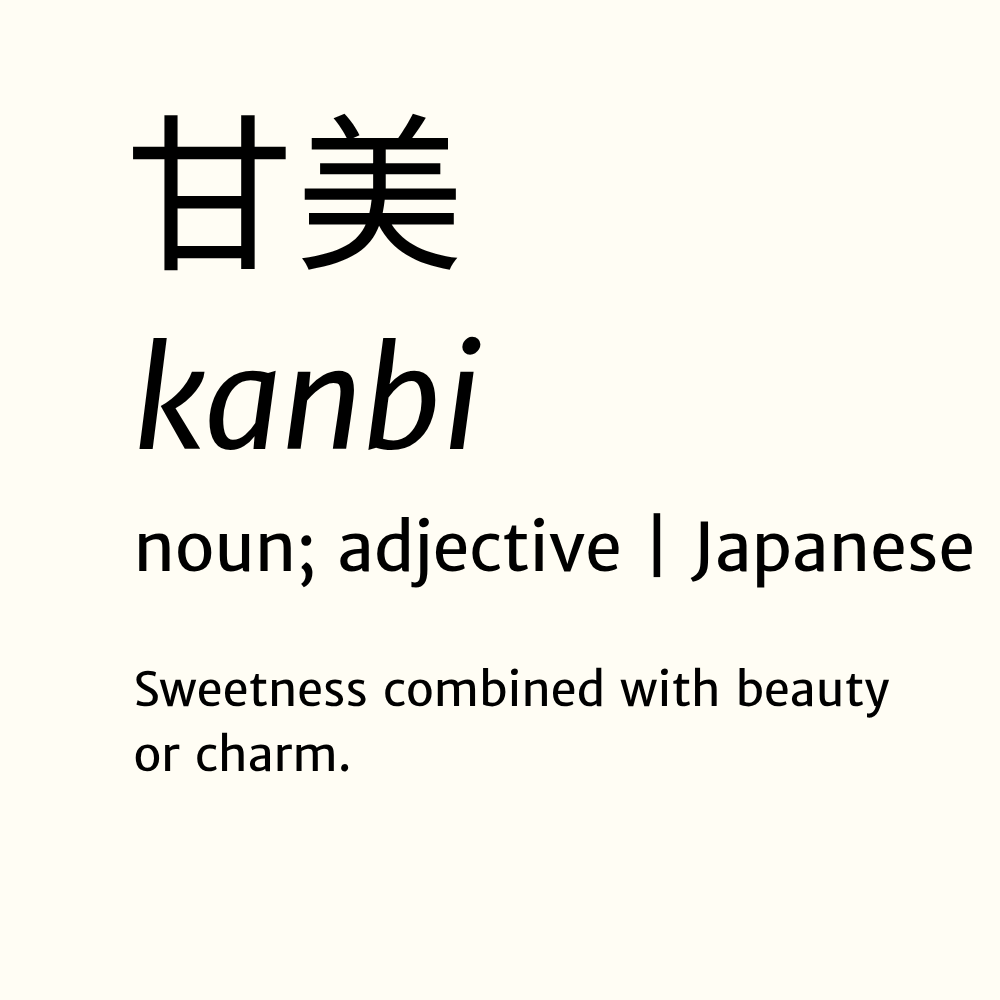
Kanbi means sweet and beautiful, often in a poetic or emotional sense. The kanji kan (甘) means ‘sweet’ and bi (美) means ‘beauty’.
It’s used to describe things that are both pleasant and moving, like a beautiful piece of music, a romantic memory, or even a kind word that lingers.
I think this is a beautiful Japanese word for its meaning and its kanji, and it’s also fun to say!
Nagi (凪)
Pronounced: na-ghee
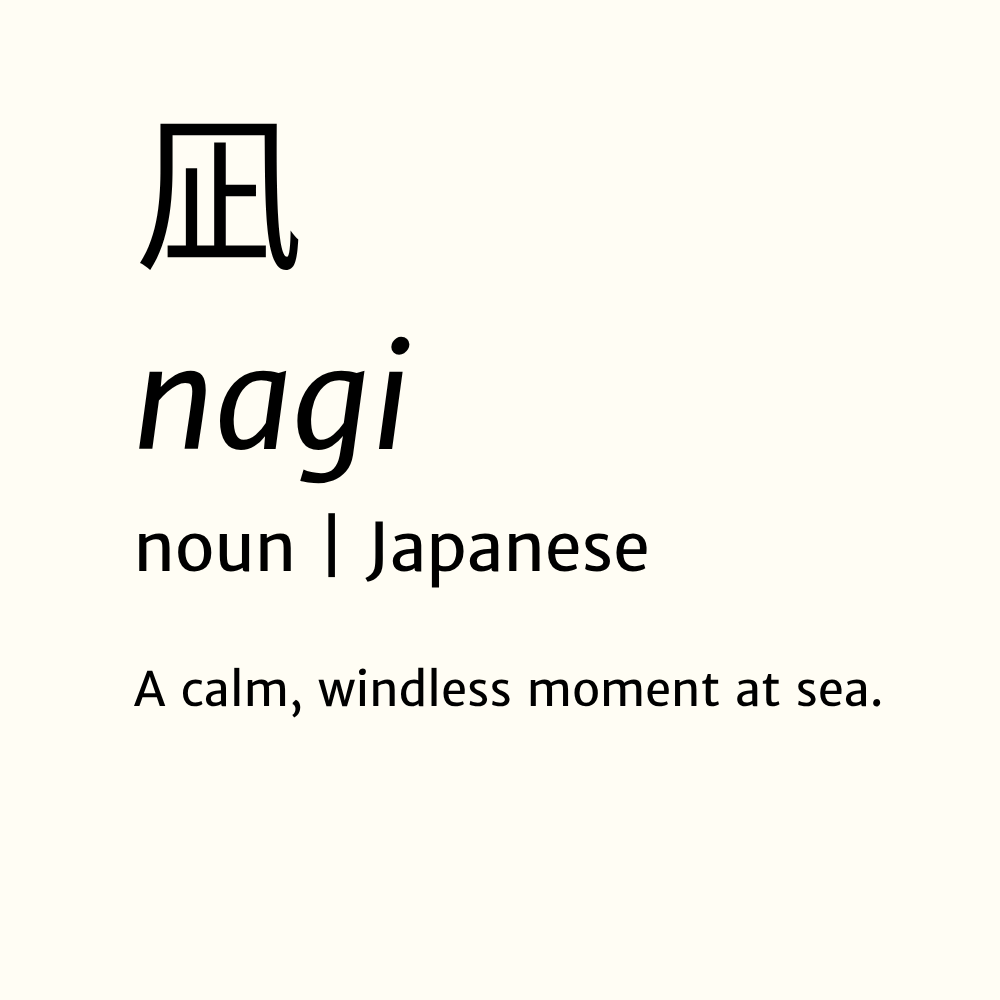
Nagi means calm, but it’s basically used only to describe the sea or the wind. It typically describes a calm, still moment at sea. It can also mean a pause between storms, both literal and emotional.
The character 凪 is rare and uniquely Japanese. It shows the radical (a part that makes up a kanji) for ‘stop’ (止) inside the radical 几, meaning ‘wind’.
Want to learn more about radicals, and how to use them as the cheat code to memorise hundreds of kanji? Check out this free ebook!
Kimyou (奇妙)
Pronounced: ki-myoh
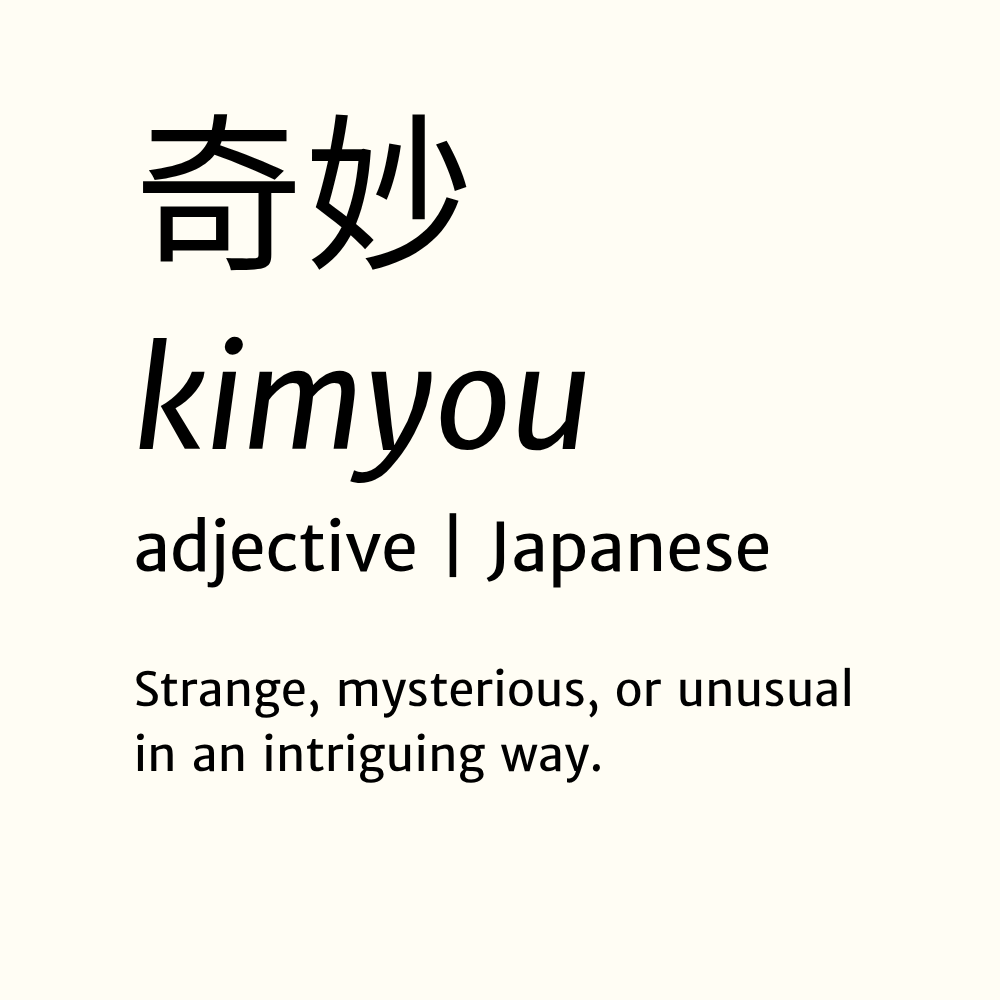
Kimyou means strange or unusual. The kanji ki (奇) means ‘rare’ or ‘odd’ and myou (妙) means ‘mysterious’ or ‘curious’. Together, they describe something that’s quirky, unexpected, or weird.
Shinrinyoku (森林浴)
Pronounced: shin-rin yo-koo

Literally meaning ‘forest bathing’, shinrin-yoku is the practice of taking mindful walks in the forest to relax and reconnect with nature. It became popular in Japan in the 1980s as a form of preventative healthcare.
The kanji shinrin (森林) means ‘forest’ and yoku (浴) means ‘bath’. But instead of getting wet, you’re immersing yourself in the atmosphere of the forest.
It’s a way to slow down, breathe deeply, and let nature restore your mind and body. And you don’t have to travel to Japan to try it! You can practise shinrinyoku anywhere you find trees.
Yakusoku (約束)
Pronounced: ya-koo-soh-koo
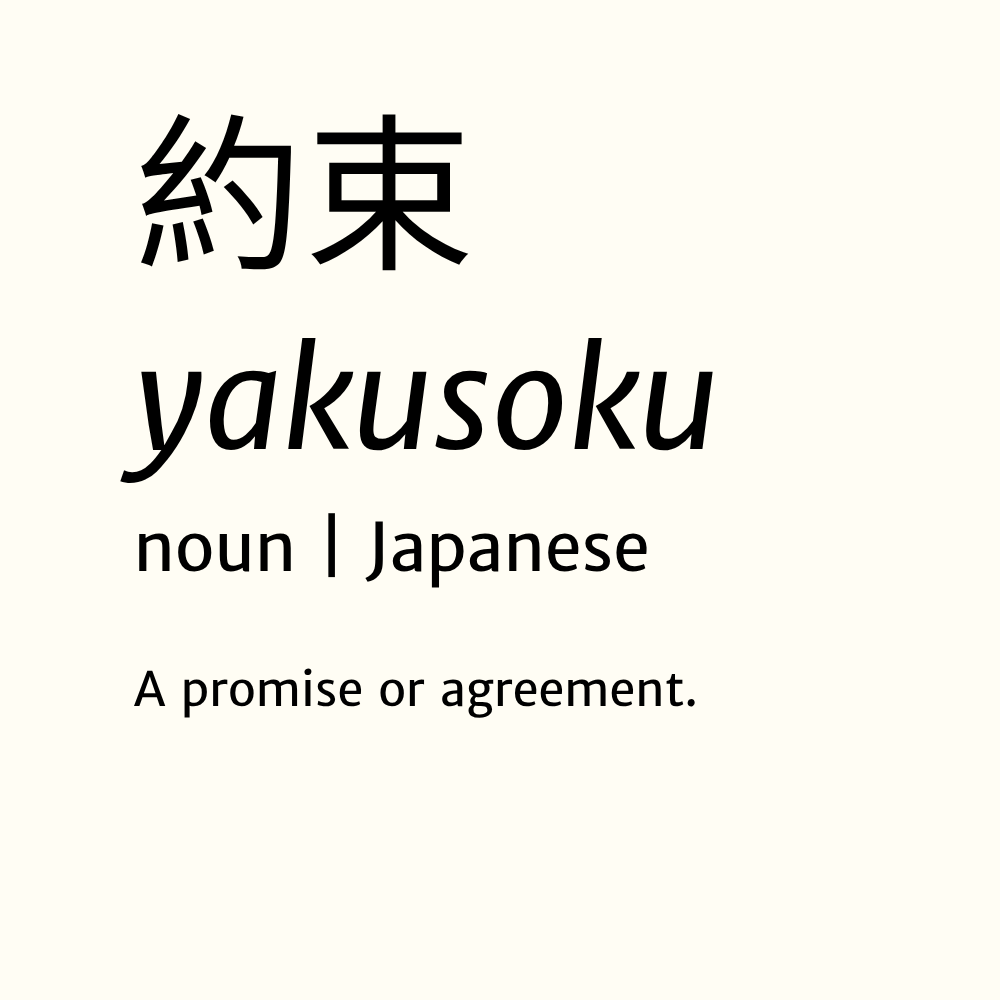
Yakusoku means promise. It can also be used in the sense of a promise to meet, such as arrangement, appointment or date.
The kanji yaku (約) means ‘to bind’ or ‘contract’, and soku (束) means ‘bundle’ or ‘tie together’.
You’ll often hear it in anime and dramas, especially between friends, family, or lovers. A yakusoku can carry deep emotional weight, especially when it’s about meeting again in the future.
I like this cool Japanese word not only because of the meaning, but also the fun rhyming sound.
Yume (夢)
Pronounced: you-meh
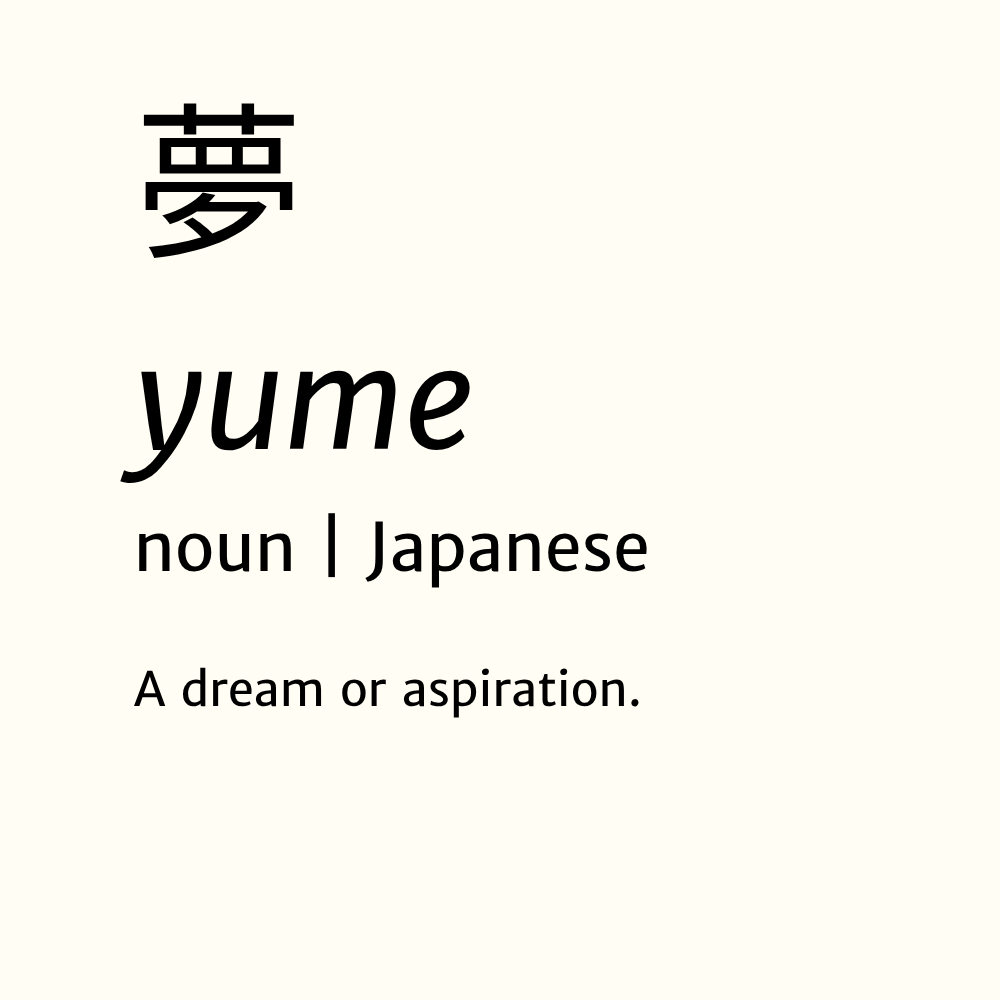
Yume means dream, both the kind you have when sleeping and the dreams you chase in life.
It’s a simple word with a lot of emotional depth, often used in songs, poetry, and dramas.
It can also be a Japanese girl’s name.
Genki (元気)
Pronounced: gen-kee
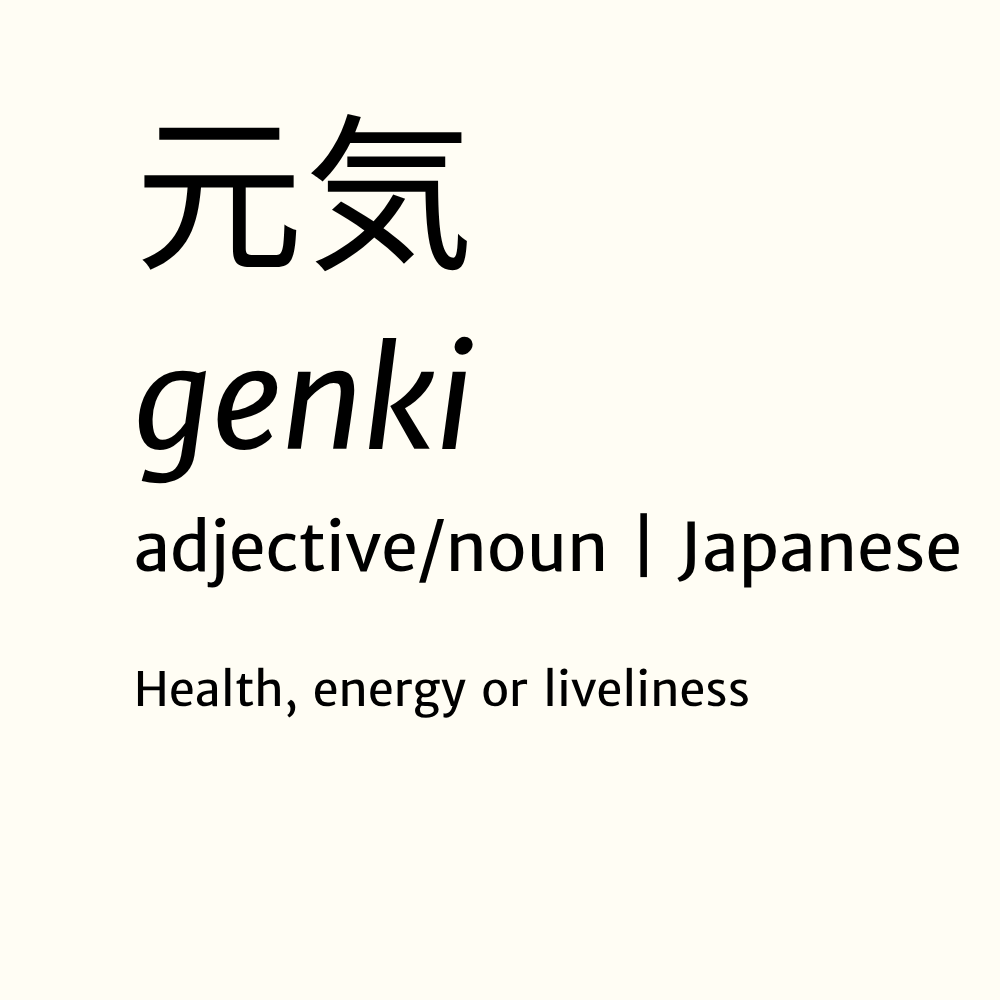
Genki is one of the first words many learners encounter. It means healthy, energetic, or lively. You’ll often hear it in greetings like ogenki desu ka — how are you?
The meaning becomes extra cool when you look at the kanji. It uses the characters gen (元) meaning ‘origin’ or ‘source’, and ki (気) meaning ‘spirit’ or ‘energy’. Together, they suggest a good, strong life force.
Genki isn’t just about physical health, but emotional brightness too. Someone who’s genki brings positive energy wherever they go.
Omakase (おまかせ)
Pronounced: oh-mah-kah-seh
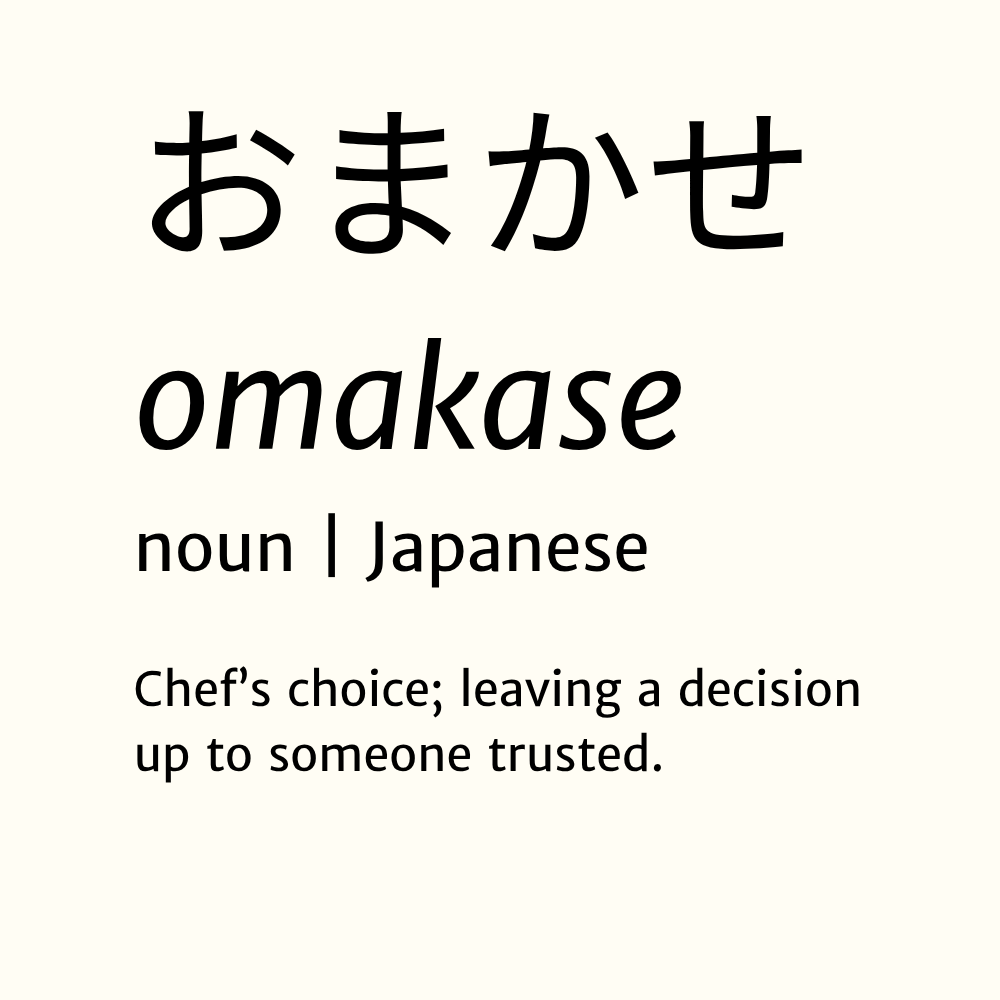
Omakase means “I’ll leave it up to you,” and it’s often used when dining out — especially at sushi restaurants. You trust the chef to choose the best dishes of the day for you.
But omakase is more than a food term. It reflects trust, respect for expertise, and a willingness to let go of control.
It’s a very Japanese idea of placing faith in someone’s care and craftsmanship.
Yasashisa (優しさ)
Pronounced: yah-sah-shee-sah
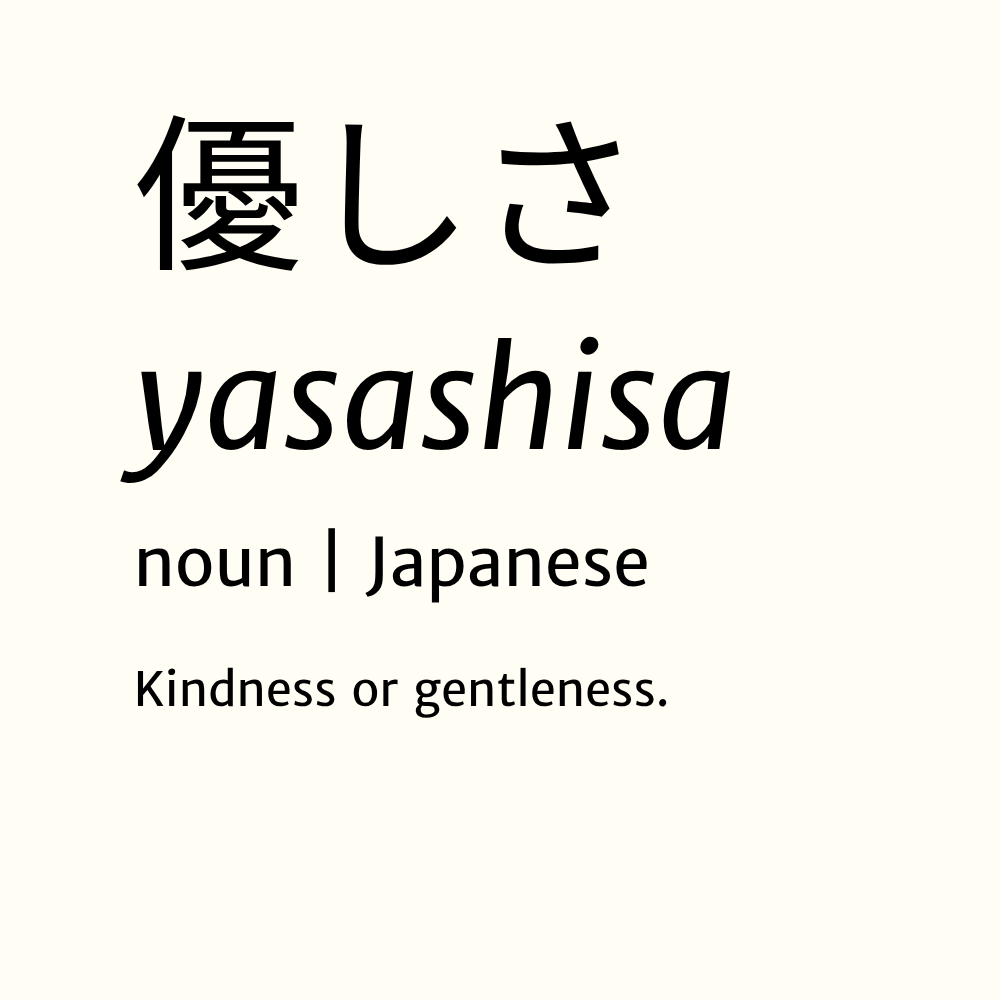
Yasashisa means gentleness or kindness. It comes from yasashii (優しい), which can describe both a kind heart and a soft, tender manner. The kanji yū (優) also carries meanings like grace, excellence, and compassion.
Yasashisa is a valued quality in Japanese culture, where being considerate of others is essential.
Although this word is a bit of a tongue twister, it’s beautiful in sound and meaning!
Tsukiyo (月夜)
Pronounced: tskee-yoh

Tsukiyo means moonlit night. The kanji tsuki (月) means ‘moon’ in Japanese, and yo (夜) means night.
In Japanese literature, especially in haiku and classical poetry, tsukiyo is a symbol of beauty, mystery, and sometimes quiet loneliness.
It’s the kind of night that makes you pause and look up at the sky.
Fall deeper in love with Japanese
I hope you enjoyed exploring these beautiful words in Japanese. They offer a glimpse into how the Japanese language captures unique concepts in a beautiful way.
And we can also enjoy the beauty of the kanji, and the sounds of the words themselves!
Whether you’re just starting to learn Japanese or simply curious, exploring the language through words like these is a great way to connect with the culture.
If you’d like to go deeper and start learning Japanese for yourself, try the FREE lessons at JapanesePod101!
It’s a great way to build your skills and fall even more in love with the language.
JapanesePod101 is our top recommendation to learn Japanese online. We love the fun, current audio lessons and interactive online tools. Sign up for your free lifetime account and see for yourself!
What’s your favourite Japanese word? Let us know in the comments!
Related posts
- 20 Meaningful Japanese Words to Deepen Your Outlook
- 24 Beautiful and Untranslatable Japanese Words
- 15 Aesthetic Japanese Words and Meanings You Will Love
📌 Pin this for later

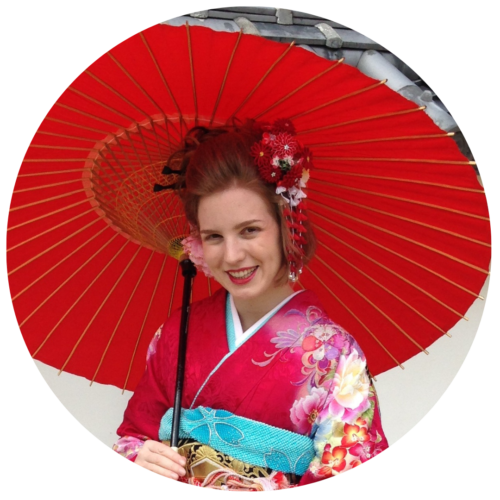
Rebecca is the founder of Team Japanese. She spent two years teaching English in Ehime, Japan. Now back in the UK, she spends her time blogging, self-studying Japanese and wrangling a very genki toddler.


